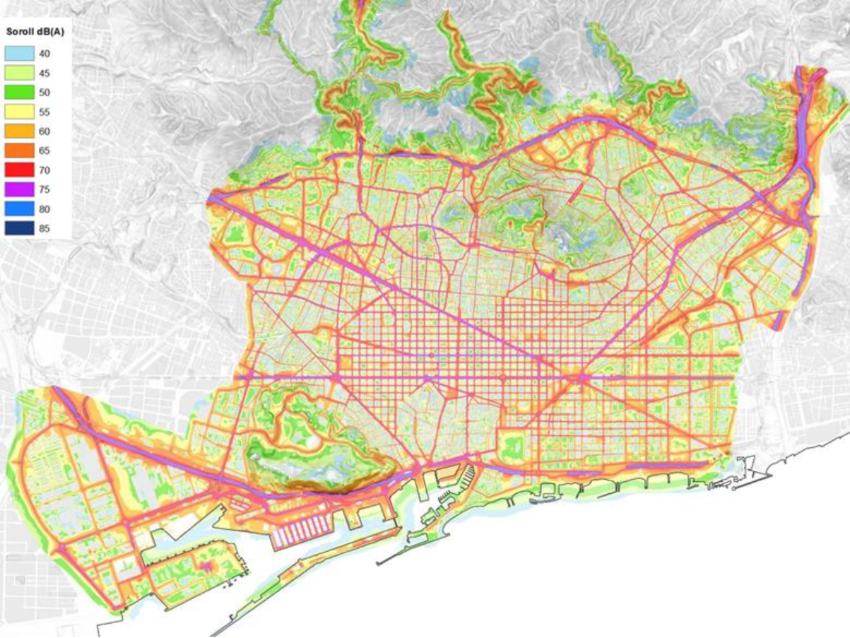A new report – published by Barcelona’s Public Health Agency with contributions from INTERFASE and UAB researchers – found that 57% of the city’s residents are exposed to noise levels that are harmful to health as defined by the World Health Organization (WHO).
“Road traffic is the main source of noise in the city of Barcelona, far above other sources, both during the day and at night.”
The second largest source of noise in the city is leisure at night “which affects 3% of the population” according to the report published on the 2nd of March 2021.
The report details the health impacts of noise pollution which include “sleep disturbance, cardiovascular disease, cardiovascular mortality and metabolic disorders in adults and an impairment of cognitive development in children”.
Approximately 130 deaths annually can be attributed to “chronic exposure to noise”, the study found.
In order to tackle these impacts, the city government has said in a press release that it aims to undertake “traffic calming and speed reduction, campaigns to reduce the acoustic impact of the noisiest vehicles and electrifying and making environmental improvements to city service vehicles”.
INTERFASE member Jaume Fons contributed to the report alongside UAB Geography researchers Núria Blanes and Miquel Sáinz de la Maza as part of the activities of the Grup d’Estudi de Contaminació acústica a Europa. The studies findings were reported by El Periodico, betevé and Time Out Barcelona.
Image: Daytime noise map, Ajuntament de Barcelona
